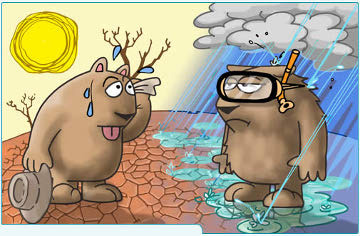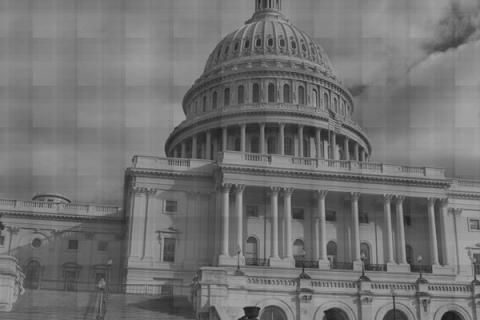The debate about climate change isn't so much about whether or not climate change is happening but what actions to take if it is. Proponents say we need to quickly switch from oil-based energy and transportation to renewable energy and electric / hybrid vehicles, and to cut carbon emissions drastically. Opponents claim not only would this be costly, it is not needed. The underlying issues, I think, are whether oil-based industries will continue to exist as they are now or be replaced by new technologies. There are huge amounts of money (and political power) at stake here. It's also a classic liberal-conservative divide, as carbon emissions would be regulated by the government, something conservatives often oppose on general principles.
As for the data, 2010 equaled 2005 as the warmest on record and it was also the wettest. However, climate scientists aren't sure if the wetness is due to global warming or not. There were also major anomalies in the weather with Russia having a massive heat wave in the summer and unusual cold in the eastern US last Jan.-Feb. But, the Arctic had fewer melt days than normal in 2010 and the Antarctic stubbornly refuses to melt and is, in fact, cooling not warming. However, Australia has had a ten year long severe drought, while major parts of Queensland have suffered severe flooding, shutting down their crucial coal industry. Many, including their government, believe their aberrant weather is at least in part due to climate change.
One problem is we've only been keeping accurate weather records for a few decades and don't really know if our current time is historically normal, hot, or cold. Also, records in other parts of the world may not be as accurate as ours, making comparisons and charting global changes difficult.
As with too much of our other politics, the debate about climate change has become sharply partisan, with the opposing sides too often using selective data to bolster their arguments and attack the other side. Also, proponents can sometimes be, well, a bit smug about the validity of their views which not only does not play well, it also leaves them vulnerable to attacks because they don't think they need to defend themselves. The recent Climategate scandal at the University of East Angola is an example of this. They waited far too long before defending themselves and by then the damage was done.
Climate change is not just a scientific debate. It also has a political and economic dimension. Some Midwest farmers are now getting subsidies to grow corn for ethanol, something which has political and economic ramifications. Renewable energy is more expensive now than traditional energy. Drilling for oil was probably quite expensive and much more hit-and-miss when that technology was in its infancy as compared to now.
As a technology develops, the price always drops due to economies of scale and competition. This is happening with renewable energy now. Maybe the question is - do we want to create our own energy here using our resources and thus be less dependent on outside sources of petroleum, or continue as we have been? Phrased that way, the debate about climate change becomes largely irrelevant.

